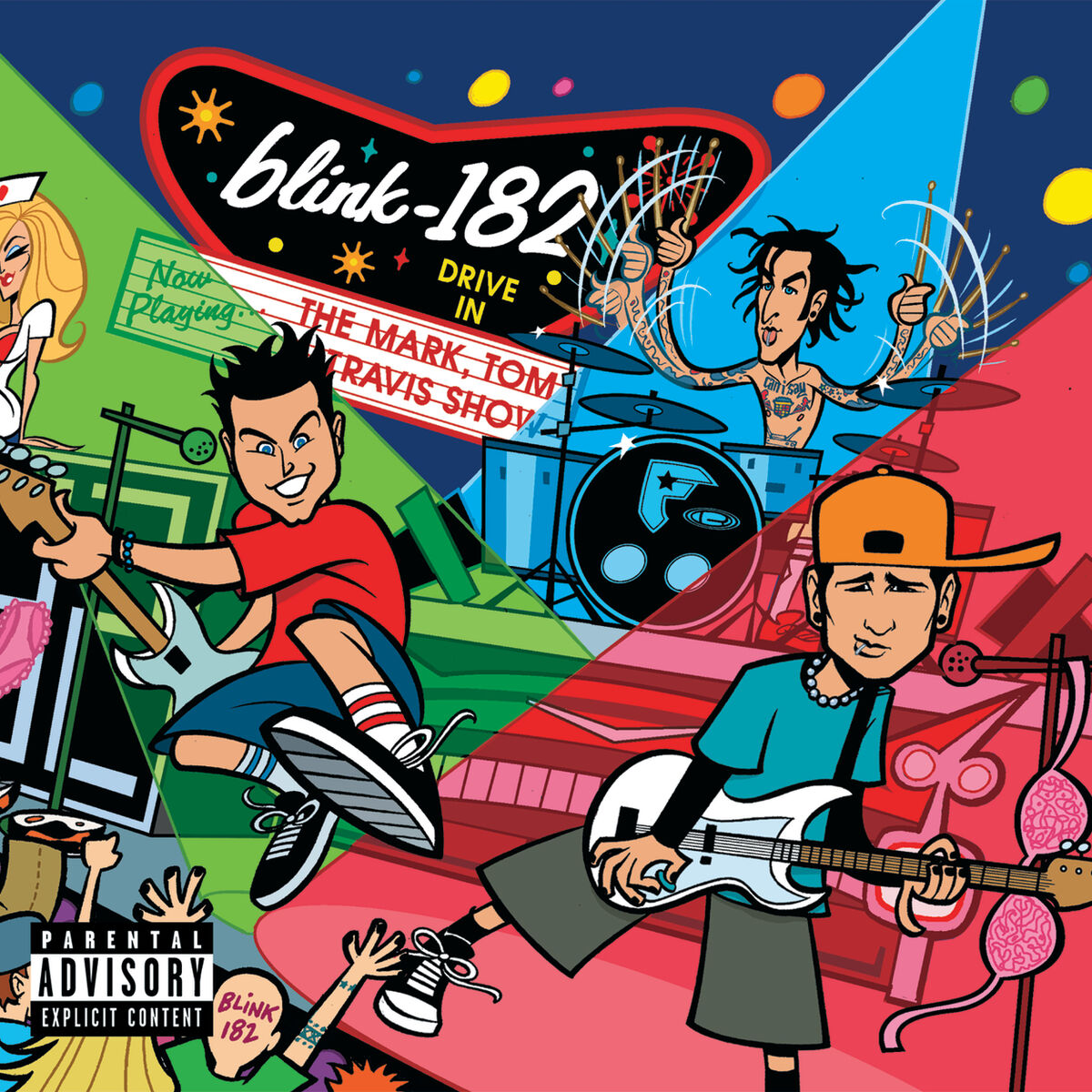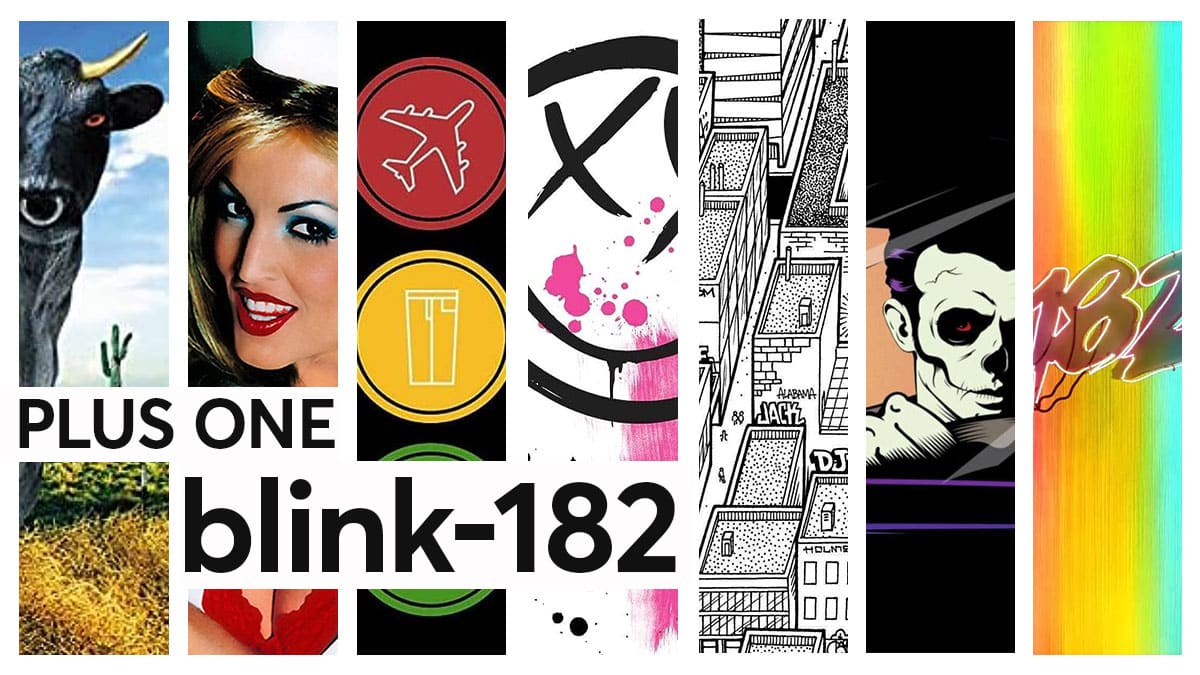No products in the cart.
New
Deconstructing Blink-182 Beyond the Pop-Punk Label
Blink-182, often hailed as one of the most influential bands in the pop-punk genre, has left an indelible mark on music and culture that transcends the simplistic categorization of a single label. Emerging from the vibrant Californian punk scene in the early 1990s, the band captured the essence of adolescence with their catchy riffs, witty lyrics, and relatable themes. As listeners, we often grapple with the question, “What genre is Blink-182?” However, to reduce them to mere pop-punk icons would be to overlook their diverse influences, complex musical identity, and lasting impact on the music landscape. This article seeks to explore the evolution of Blink-182, their defining characteristics, and the legacy they have forged over decades.
The Evolution of Blink-182: From Pop-Punk Pioneers to Modern Rock

The journey of Blink-182 is one marked by experimentation and change, reflecting the band’s ability to evolve in response to both personal growth and shifts within the broader music industry. Their evolution can be divided into distinct phases, each characterized by a unique sound and thematic exploration.
The Early Years: Crafting a Signature Sound
In their formative years, Blink-182’s early releases set the stage for their signature pop-punk sound. Their debut album, Cheshire Cat, released in 1995, introduced fans to their high-energy style, characterized by fast tempos, catchy melodies, and a playful irreverence. Songs like “Carousel” and “M&Ms” showcased their knack for crafting infectious hooks and memorable choruses, while also providing a glimpse into the youthful angst that would come to define much of their work.
With the release of their second album, Dude Ranch (1997), the band solidified their place within the pop-punk landscape. Tracks such as “Dammit” exemplified their ability to blend humor with heavier themes, striking a balance between lightheartedness and the emotional turmoil experienced during adolescence. This album marked a key moment in their development, as they began to attract broader audiences and gain recognition beyond the underground punk scene.
The Commercial Breakthrough: Enema of the State
The turning point for Blink-182 came in 1999 with the release of Enema of the State. This album catapulted them into mainstream consciousness, propelled by a polished sound and radio-friendly hits. Singles like “All the Small Things” and “What’s My Age Again?” became anthems for a generation, encapsulating the insecurities and playfulness of youth. With its catchy hooks and clever lyrics, Enema of the State not only redefined the pop-punk genre but also established Blink-182 as superstars.
As their popularity soared, the band’s sound continued to mature. They embraced newfound production techniques and experimented with different arrangements, creating a more refined aesthetic while still retaining their trademark energy. The success of this album opened doors for countless other bands within the genre, paving the way for the explosion of pop-punk in the early 2000s.
The Post-DeLonge Era: A Shift in Direction
After Tom DeLonge’s departure in 2005, Blink-182 faced a pivotal moment in their career. The remaining members—Mark Hoppus and Travis Barker—chose to continue making music, leading to new explorations and experimentation. The resulting albums Neighborhoods (2011) and Dogs Eating Dogs (2012) reflected a darker and more mature sound, incorporating elements of alternative rock and electronic music.
These albums marked a departure from the carefree exuberance of their earlier work, delving into themes of introspection, loss, and uncertainty. Collaborations with various producers allowed them to experiment with different sonic textures and styles, showcasing their growth as artists. Nonetheless, these changes also led to mixed reactions from long-time fans, some of whom yearned for the nostalgic vibrancy of the band’s earlier sound.
The Return of DeLonge: Rediscovering Roots
The reunion of Blink-182 in 2014, with DeLonge back in the fold, reignited excitement among fans and marked a return to their classic sound. With the release of California (2016) and Nine (2019), the band struck a balance between their pop-punk roots and contemporary influences. These albums featured a mix of nostalgic melodies and modern production techniques, inviting both old and new fans to partake in their musical journey.
The reemergence of DeLonge brought about a renewed sense of creativity within the band, allowing them to reflect on their past while forging ahead into new territory. Lyrics became more layered, addressing themes of maturity and self-reflection while retaining the humor and wit that had always been a hallmark of their writing. The evolution of Blink-182 showcases their adaptability, illustrating how they have maintained relevance amid changing musical landscapes.
Deconstructing Blink-182’s Genre: A Blend of Punk, Pop, and Alternative

When examining the genre classification of Blink-182, it becomes increasingly clear that their musical identity cannot be confined to a single label. Instead, they embody a rich tapestry of influences and styles that contribute to their distinctive sound.
The Core of Pop-Punk
At its heart, Blink-182’s music embodies the very essence of pop-punk—a genre defined by its melodic hooks, fast tempos, and youthful rebellion. Drawing from the raw energy of punk rock, Blink-182 infused their songs with accessible melodies that made them appealing to a wide range of listeners. This blend of punk ethos and pop sensibility has become a foundational element of their music.
Their ability to harmonize complex emotions with catchy melodies creates a unique listening experience. Songs like “First Date” and “I Miss You” exemplify their knack for juxtaposing upbeat instrumentals with poignant lyrics, resonating deeply with fans navigating the complexities of growing up. By embracing the pop aspect of their music, Blink-182 helped introduce punk sounds to mainstream audiences, effectively bridging the gap between genres.
Influences Beyond Punk
While rooted in pop-punk, Blink-182’s musical influences extend far beyond that genre. They have drawn inspiration from various sources, including alternative rock and even mainstream pop. Bands like Nirvana and Pearl Jam played a crucial role in shaping their songwriting techniques, encouraging them to craft emotionally resonant melodies that connect with listeners on multiple levels.
Additionally, their incorporation of pop elements has allowed them to create catchy hooks that resonate across different musical tastes. The melodic sensibilities influenced by artists such as Weezer and The Beatles showcase their versatility and willingness to push the boundaries of what defines their sound.
The Balance of Humor and Darkness
One of the defining aspects of Blink-182’s music is their ability to navigate the line between humor and serious themes. Their lyrics are often filled with sardonic wit, capturing the absurdity of life experiences while simultaneously addressing deeper emotional struggles. By employing humor as a tool for storytelling, they engage listeners in a way that feels authentic and relatable.
Songs like “The Rock Show” highlight their penchant for playful lyrics, celebrating teenage escapades and carefree moments. Conversely, tracks like “Adam’s Song” reveal the band’s capacity to tackle topics such as depression and loneliness, demonstrating depth behind their often jovial facade. This balance allows Blink-182 to resonate with fans who appreciate both the lightheartedness and gravity present in their music.
Beyond the Label: Exploring the Subgenres and Influences of Blink-182’s Music

To truly appreciate Blink-182’s artistry, it’s essential to explore the various subgenres and influences that have shaped their sound throughout the years. By expanding our understanding of their musical identity, we can see how the band defies traditional categorization.
The Influence of Skate Punk
Skate punk emerged as a significant influence on Blink-182’s sound, particularly during their early years. Building upon the fast tempos and aggressive guitar riffs typical of punk rock, skate punk incorporates elements of melody and accessibility. Bands like NOFX and Pennywise provided a foundation for Blink-182 to incorporate energetic rhythms and clever lyrics into their music.
Tracks such as “Dumpweed” and “Aliens Exist” reflect the essence of skate punk, featuring driving beats and rapid-fire guitar lines. This influence not only shaped their sound but also connected them to the broader skateboarding culture, further embedding them within the punk rock ethos of freedom and rebellion.
Alternative Rock Infusion
As Blink-182 evolved, they began incorporating elements of alternative rock into their music, especially evident in their later works. The experimentation with different sonic textures and styles reflects a desire to break out of the confines of pop-punk. Bands like Radiohead and The Smashing Pumpkins served as inspirations for this shift, encouraging the band to explore more complex arrangements and lyrical themes.
Albums such as Neighborhoods and California exemplify this blend of alternative rock influences, with atmospheric elements and introspective lyrics becoming increasingly prominent. This evolution showcases Blink-182’s willingness to grow and adapt, ensuring their sound remains fresh and relevant in an ever-changing musical landscape.
The Role of Emo and Post-Hardcore
Another dimension of Blink-182’s sound can be traced to the influence of emo and post-hardcore music. While they may not fit neatly within these genres, certain elements, such as emotional vulnerability and intricate song structures, find their way into their discography. Bands like Taking Back Sunday and Brand New helped shape this facet of their sound, inspiring more introspective lyricism and dynamic compositions.
Tracks like “I Miss You” and “Stay Together for the Kids” exhibit the emotional depth and sincerity characteristic of emo, while maintaining the catchy melodies that initially garnered Blink-182 widespread acclaim. This blending of genres highlights the fluid nature of their musical identity and demonstrates their ability to draw from diverse influences.
The Impact of Blink-182 on the Music Industry: A Legacy of Pop-Punk Dominance
As one of the defining bands of the late ’90s and early 2000s, Blink-182’s influence on the music industry is undeniable. Their contributions to the pop-punk genre have shaped the trajectory of countless artists and paved the way for future generations.
Redefining Pop-Punk for a New Generation
Blink-182 played a pivotal role in bringing pop-punk into the mainstream consciousness. Their success not only helped elevate the genre but also inspired a wave of bands seeking to emulate their catchy sound and relatable lyrics. Groups like Fall Out Boy, Paramore, and Simple Plan owe much of their commercial viability to the groundwork laid by Blink-182.
By infusing pop sensibilities into punk music, Blink-182 effectively reshaped the expectations surrounding the genre. They demonstrated that punk could be both commercially successful and artistically viable, allowing for a greater diversity of voices and sounds within the pop-punk community.
Cultivating a Fanbase Through Authenticity
Perhaps one of the most important aspects of Blink-182’s legacy is their ability to forge genuine connections with fans. Their candidness about personal struggles and adolescent experiences resonated with listeners, fostering a sense of community among fans who identified with the band’s stories.
Through their humor and relatability, Blink-182 cultivated a loyal fanbase that transcended musical preferences. Concerts became communal experiences, offering fans a space to connect, share memories, and embrace the joys and challenges of growing up. This authenticity continues to serve as a guiding principle for many artists today.
Bridging Musical Genres and Cultures
Blink-182’s crossover appeal has allowed them to bridge gaps between various musical genres and cultures. By blending elements of punk, pop, and alternative rock, the band has attracted diverse audiences who might otherwise remain separated by musical boundaries. Their willingness to innovate and experiment has opened doors for collaborations with artists from different genres, further cementing their status as cross-genre innovators.
As a result, Blink-182 has played a significant role in shaping the broader musical landscape, influencing artists who aspire to traverse genres and blur traditional classifications. Their groundbreaking approach has encouraged subsequent generations of musicians to explore new sonic territories and redefine their artistic identities.
The Changing Sounds of Blink-182: From Early Adolescence to Mature Reflection
Throughout their trajectory, Blink-182’s music has mirrored their personal growth and evolving perspectives on life. The themes explored in their lyrics have matured alongside the band members, transitioning from the angst-ridden concerns of youth to more profound reflections on relationships, identity, and the passage of time.
Capturing the Spirit of Youth
In their earlier years, Blink-182 perfectly encapsulated the youthful exuberance and confusion that often accompany adolescence. Their lyrics spoke to the trials and tribulations of teenage life, resonating with a generation grappling with issues of love, friendship, and social anxiety. Songs like “What’s My Age Again?” and “All the Small Things” captured the essence of being young and carefree, inviting listeners to revel in the joys and dilemmas of youth.
The infectious energy of their music provided an escape for many, allowing fans to find solace in shared experiences. Blink-182’s ability to articulate these feelings through catchy melodies and relatable lyrics contributed significantly to their initial rise to fame and widespread popularity.
Navigating Themes of Maturity
As Blink-182 matured as individuals and artists, their music began to reflect a broader spectrum of life experiences. With the release of albums like California and Nine, the band tackled more complex and introspective themes, exploring topics such as heartbreak, loss, and existential questions.
Tracks like “Bored to Death” and “I Really Wish I Hated You” demonstrate a shift in perspective, as the band grapples with the realities of adult relationships and personal struggles. This evolution illustrates their willingness to confront the challenges of growing older while maintaining the core elements that endeared them to fans in the first place.
Embracing Vulnerability and Authenticity
A key aspect of Blink-182’s recent work is their embrace of vulnerability and authenticity. In an era where curated personas dominate the music industry, Blink-182’s willingness to bare their emotions resonates deeply with fans seeking genuine connections. By sharing their own struggles, the band fosters a sense of solidarity, reminding listeners that they are not alone in facing life’s uncertainties.
This vulnerability is particularly evident in songs like “I Miss You,” where melancholic themes intertwine with heartfelt lyrics. By allowing themselves to be open and honest, Blink-182 has created a safe space for fans to process their own emotions, reinforcing the notion that music can be a powerful tool for healing and connection.
Defining Blink-182’s Genre: A Multifaceted Exploration of Their Musical Identity
The question of “What genre is Blink-182?” remains a topic of debate among fans and critics alike. While pop-punk serves as a convenient label, it ultimately fails to encompass the entirety of their musical identity. To fully appreciate Blink-182’s artistry, one must consider the multifaceted nature of their sound, which draws from a myriad of genres and influences.
The Fusion of Genres
At its core, Blink-182’s music represents a fusion of genres that transcends traditional classifications. Their ability to incorporate elements of punk, pop, alternative rock, and even hints of emo creates a sonic landscape that feels dynamic and varied. By breaking down barriers and combining different styles, Blink-182 has carved out a unique niche that continues to captivate listeners.
This genre-blending approach is evident in songs like “The Rock Show,” which combines punk fervor with catchy pop melodies, while tracks like “I Miss You” showcase a more somber and introspective side. This diversity allows them to appeal to a wide range of audiences, positioning them as a versatile force within the music industry.
Cultural Significance and Evolution
Beyond musicality, Blink-182’s cultural significance plays a vital role in their identity. Emerging during a time when the internet was beginning to shape how music was consumed, they harnessed the power of digital platforms to reach fans directly. Their ability to connect with audiences through social media and online interactions further solidifies their relevance in contemporary music culture.
Moreover, Blink-182’s evolution mirrors broader societal shifts, reflecting the changing landscape of youth culture and the challenges faced by successive generations. Their willingness to adapt and address pertinent issues—such as mental health, relationships, and technology—resonates with listeners navigating similar experiences in an ever-evolving world.
Best Blink-182 Gifts For Fans
Buy Now! Blink-182 Christmas Sweater
Challenging Expectations
Ultimately, Blink-182’s refusal to be constrained by a singular label highlights the complexity of their musical identity. Their journey from pop-punk pioneers to multifaceted artists demonstrates the importance of challenging expectations and embracing creative exploration. Rather than fitting neatly into predefined categories, Blink-182 stands as a testament to the power of artistic evolution and the potential for music to transcend boundaries.
In exploring Blink-182’s journey, musical influences, and enduring impact, we uncover a band that defies simplistic genre classification. Their unique blend of punk, pop, and alternative rock, combined with a willingness to evolve and experiment, has secured their place as one of the most iconic bands of their generation.
Whether celebrated for their catchy melodies or poignant lyrics, Blink-182’s legacy endures as a testament to the power of music to inspire, connect, and heal. As they continue to navigate their artistic path, there’s no doubt that Blink-182 will leave an indelible mark on the music landscape for generations to come.
